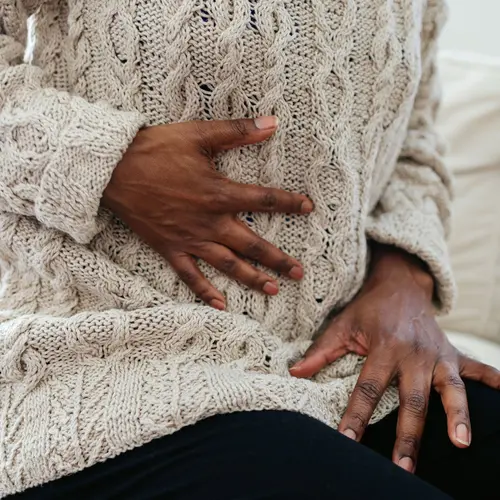There’s lots of interest in medical marijuana and CBD to help manage a variety of conditions and symptoms such as pain, nausea, and trouble sleeping. If you or a loved one is struggling with ulcerative colitis (UC) and its symptoms, you might wonder if marijuana or CBD could help with those.
It’s useful to understand the difference between marijuana and CBD. Marijuana comes from a plant that people sometimes use for recreational or medicinal purposes called Cannabis sativa. It contains two main active ingredients: THC (short for delta-9 tetrahydrocannabinol) and CBD (short for cannabidiol).
It’s the THC in marijuana that gives you a high. If you buy CBD products, they come from a cannabis cousin of marijuana called hemp. There shouldn’t be much if any THC in your CBD. So CBD might make you feel tired or make your mouth feel dry, but you won’t get high from taking it.
Does either help with UC? Some researchers and doctors are exploring the possibility that cannabis in one form or another helps people with inflammatory bowel disorders including UC. Based on the evidence so far, the answer isn’t a simple yes or no.
“There is a percentage of patients who use cannabis and feel better,” says Jami Kinnucan, MD, a gastroenterologist at the University of Michigan. “Their symptoms -- most commonly abdominal pain or body pain, diarrhea, appetite, and nausea -- improve.”
Limited Evidence
But, Kinnucan says, this doesn’t mean using cannabis is a good way to treat UC. That’s because people with UC have inflammation in their digestive tracts. This inflammation as well as ulcers is tied to UC symptoms, including diarrhea, pain, cramping, bleeding and fatigue. A primary aim of treatment is to stop the inflammation.
There’s some evidence in mice suggesting that cannabis could help with inflammation. This has to do with certain receptors that respond to other cannabinoids our bodies make naturally. Cannabis also may slow the digestive tract. But it isn’t clear that smoking cannabis or taking it in a capsule fights the underlying inflammation in people with UC.
In one small clinical trial, people with UC who took CBD capsules containing a small amount of THC for 10 weeks weren’t any more likely to go into remission than those taking a placebo. Smoking two marijuana cigarettes a day didn’t lower signs of inflammation either.
“If you do blood work, imaging or stool samples, patients’ numbers don't change,” Kinnucan says. “While they may feel better, their inflammatory burden isn’t improving.”
The CBD study did report that the 10-week treatment improved quality of life. But the study’s participants also reported side effects, including dizziness, trouble paying attention, headache, nausea, and fatigue. Dizziness was the most common reason people in the CBD study dropped out. The marijuana study didn’t report on side effects or quality of life.
A recent review of the two clinical studies concluded that the effects of cannabis and CBD in people with UC remain uncertain. There’s no evidence that it can help to put people with UC into remission.
But it’s too soon to say whether it sometimes helps in other ways and how safe it is.
Kinnucan says it’s possible that cannabis could help some patients with UC and not others. For those with UC that’s controlled by medication, she says there’s no reason to think adding cannabis would help. It’s never a good idea to replace approved medicines with cannabis. There’s a risk that cannabis could hide symptoms and encourage people to stop needed treatments.
“At the end of day, if the hope is to control inflammation, there is no data to support that,” Kinnucan says.
Weigh the Risks
What’s most important for people with UC is to continue with treatments that doctors know work. If you continue to have symptoms, Kinnucan says a doctor should evaluate your disease to make sure the treatments you’re taking are sufficient. But if you or a loved one are taking medications as prescribed to control the UC, there’s a chance that cannabis might help with lingering symptoms like pain or nausea. She recommends taking cannabis orally over smoking it because of the risks of smoking and to start with the lowest THC levels.
Kinnucan says more doctors and patients should talk about cannabis, including how and why patients might be using it on their own. But for now, it's difficult for doctors to know how to advise people with UC about how they might use cannabis safely. Studies of cannabis for inflammatory bowel diseases including UC are ongoing, so more data is coming.
In addition to whether it works, doctors and patients also have legal issues to consider when it comes to cannabis. CBD is federally legal as long as it contains only very low levels of THC, although the rules in particular states could change.
For marijuana, it’s more complicated. For example, in Michigan, recreational marijuana is legal but medical marijuana requires a confirmed diagnosis from two doctors. UC is on the list of qualifying conditions for medical marijuana. Marijuana can be classified as medicinal or recreational. Both are legal in some states. Other states have only legalized medical marijuana. And in some, no form is legal. The federal Drug Enforcement Administration (DEA) also recognizes marijuana, including medical marijuana, as a controlled substance.
“We have patients who live in one state and drive across state lines to obtain cannabis but then illegally bring it back in,” Kinnucan says. “You should refer to your state laws. Crossing a border can be a criminal activity.”

